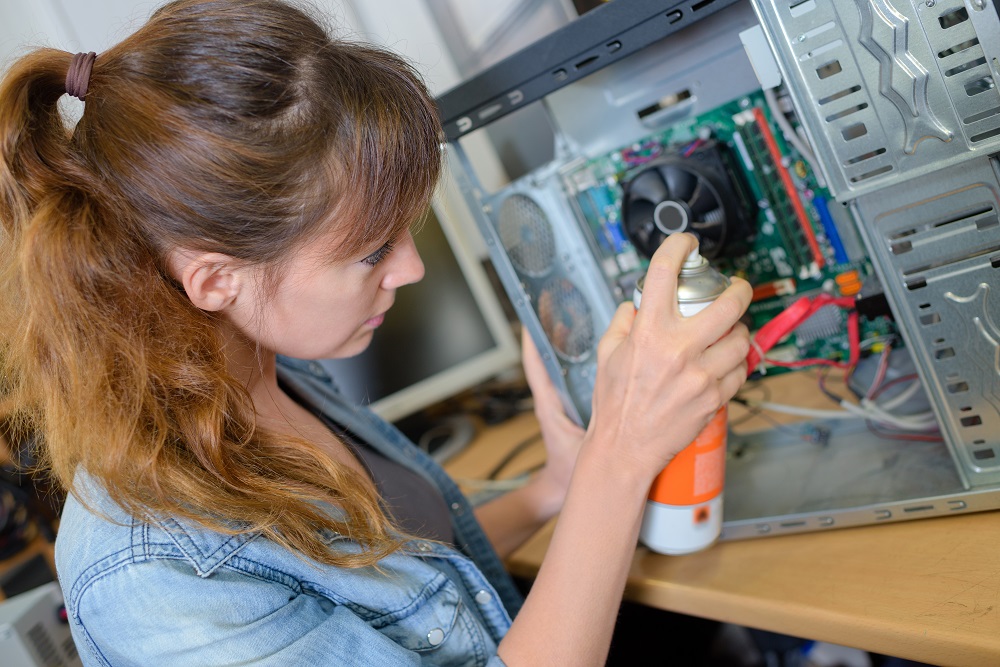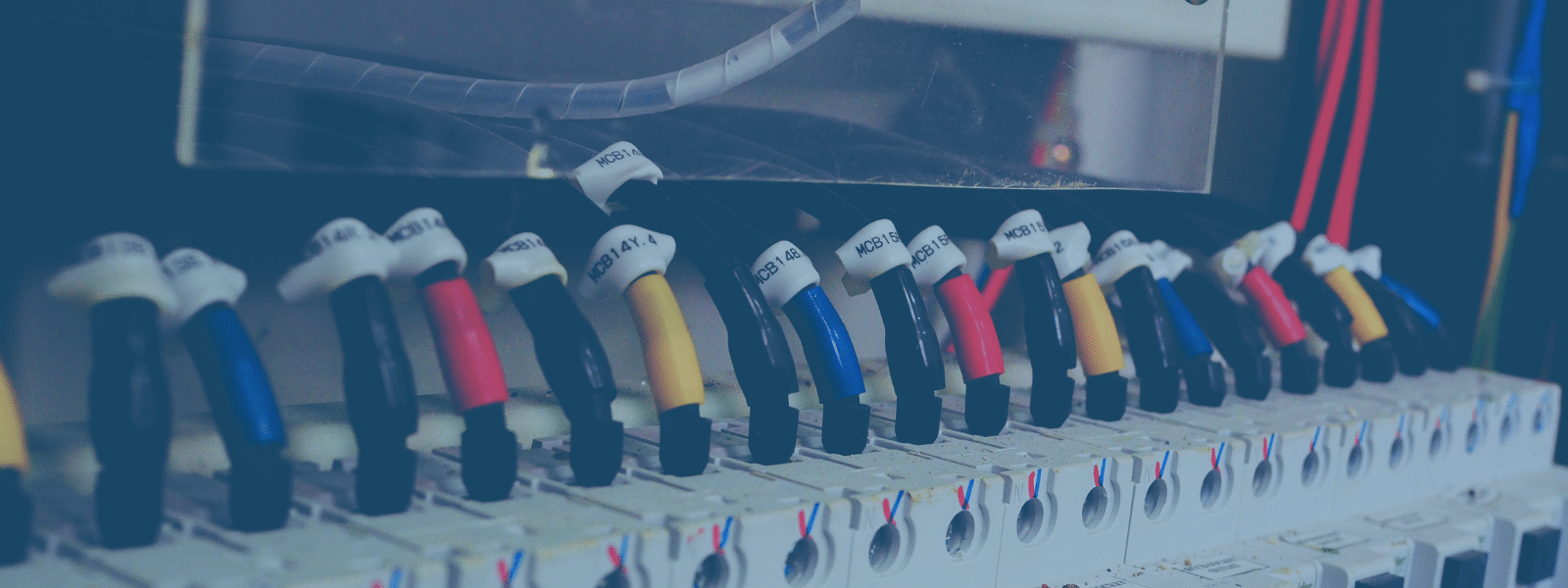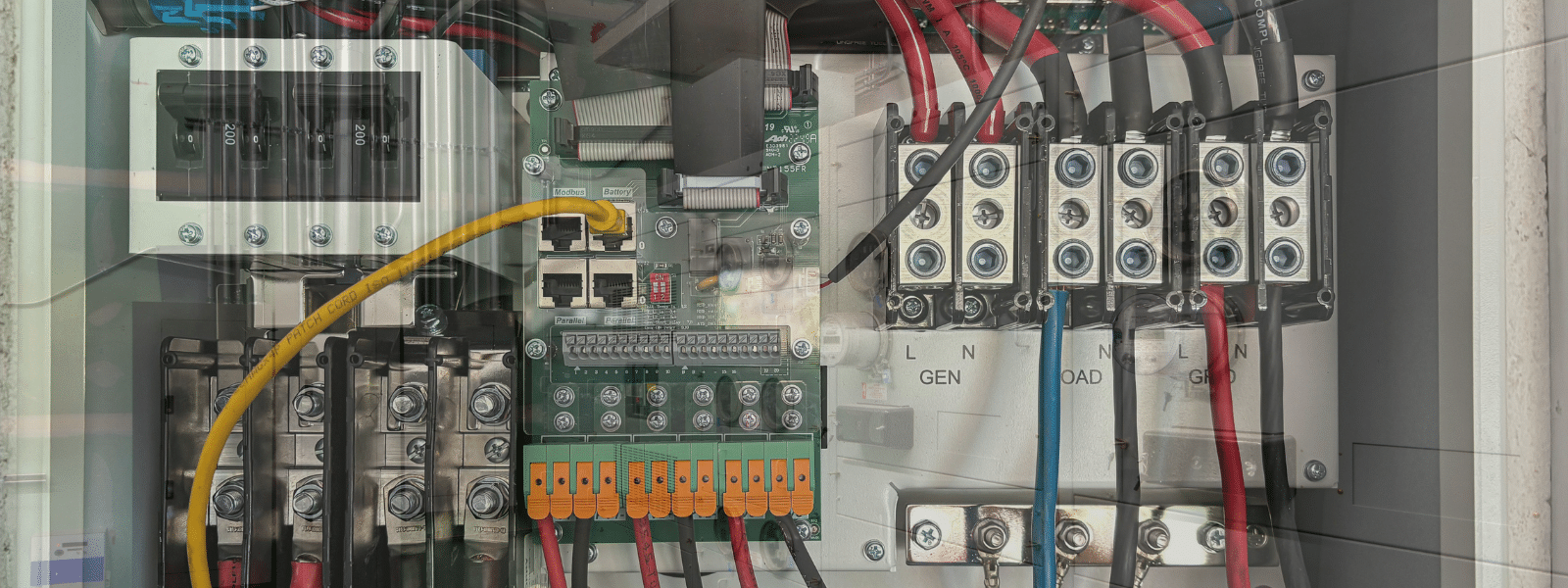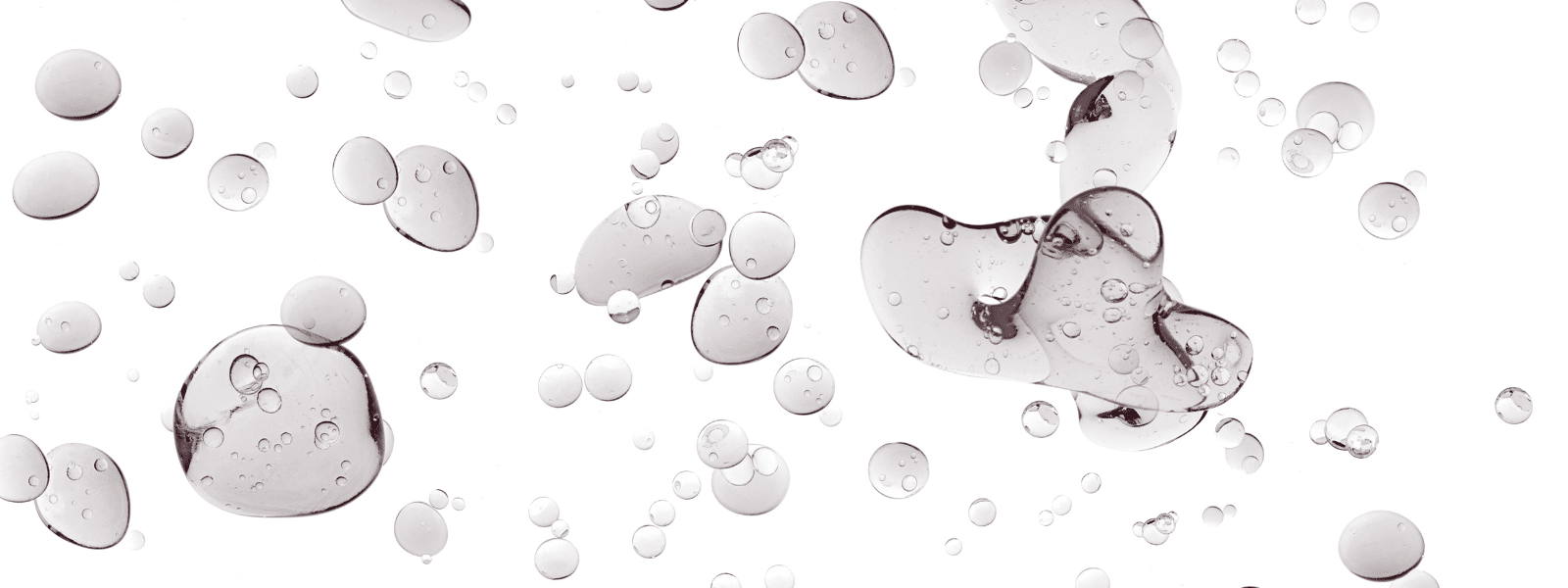What is a dielectric solvent? You already know what a solvent is, so what you need is the definition of “dielectric”. Wikipedia gives a nice summation of the term:
“A dielectric (or dielectric material) is an electrical insulator that can be polarized by an applied electric field. When a dielectric is placed in an electric field, electric charges do not flow through the material, as they do in an electrical conductor, but only slightly shift from their average equilibrium positions, causing dielectric polarization.
Furthermore, “Because of dielectric polarization, positive charges are displaced toward the field and negative charges shift in the opposite direction. This creates an internal electric field that reduces the overall field within the dielectric itself.”
In other words, a dielectric or dielectric material impedes the flow of electricity through the solvent stream, preventing you from receiving an electrical shock while cleaning electrical equipment, unless the solvent’s dielectric isn’t strong enough to impede the equipment’s active voltage.
Establishing Dielectric Strength
Suppliers of dielectric solvents offer them in different dielectric strengths for a reason. Different cleaning operations involve different voltages. Some equipment is cleaned while energized, meaning the operating voltage could travel through the solvent stream and shock a worker, if the solvent’s dielectric isn’t sufficiently strong.
When ordering industrial dielectric solvent from a professional supplier, dielectric strength will be identified in the “product description” or “product safety” resources available online and in print. If in doubt about the dielectric strength you need for an application, don’t resort to trial and error; it’s too dangerous. Instead, contact the product’s manufacturer to clarify dielectric resistance.
Dielectric Versus Flash Point
One mistake new solvent users make is thinking that a strong dielectric is the equivalent of a non-flammable or high flashpoint formulation, which isn’t true. A solvent with dielectric strength can be flammable. And flammable solvent with dielectric strength may resist ignition from an arc flash, for example.
Before you order a dielectric solvent, determine whether you need a non-flammable formulation, as well. For safety reasons, address this issue with the manufacturer upfront, before you order.
Shopping with Ecolink
If you need a dielectric solvent for cleaning electrical equipment, Ecolink can provide a solution that works flawlessly. If you need to clean energized equipment with your dielectric solvent, it’s essential to establish the dielectric strength you need upfront. This is what our dedicated team of chemists is here to help you do.
When selecting your solution, you have two options: order a stock solution that’s preformulated and ready to ship, or request a custom solvent that’s designed for your unique requirements. Because custom solvents are a bit more expensive, we recommend evaluating stock options first, and then pursuing a custom solution is no stock solvents offer a perfect fit.
Regardless of the solution you order, feel free to request a free test sample, so you can see how the solvent works for your application. If you get excellent results, you can place you official order with confidence, knowing that you’re receive the best solution for the job.
Contact Us Today
For assistance identifying the right solvent for your application, call us today at 800-563-1305, or use our contact form. We look forward to providing environmentally preferred solvent options!















